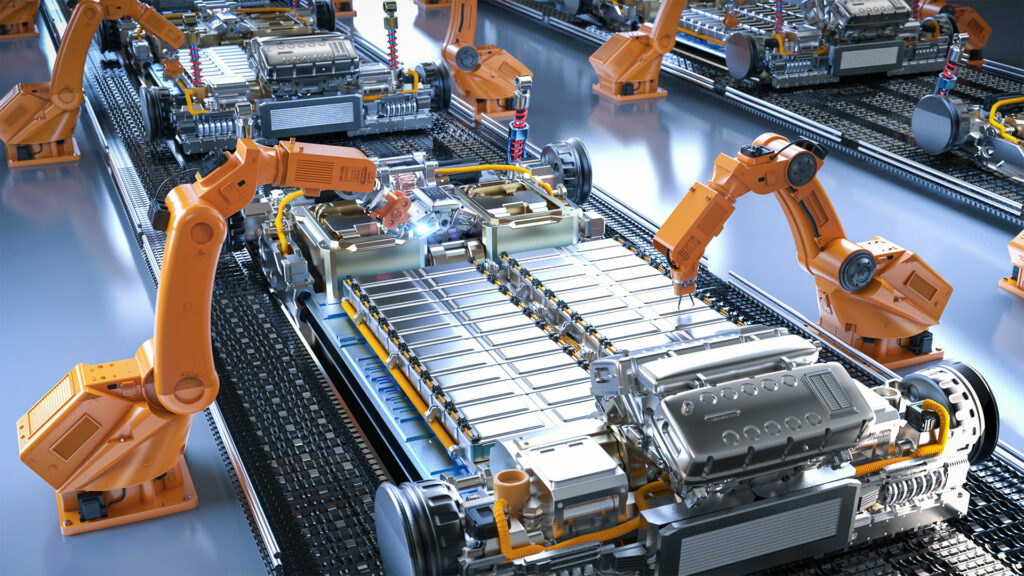In a startling development, Stellantis, one of the largest automakers globally, has warned the UK government that parts of its car industry could be lost unless the Brexit deal is renegotiated. The company, known for producing brands like Vauxhall, Peugeot, Citroen, and Fiat, had previously committed to manufacturing electric vehicles (EVs) in the UK. However, it now claims that it cannot adhere to the trade rules outlined in the Brexit agreement regarding the sourcing of parts. The collapse of Britishvolt at the start of 2023 was a key factor.
The UK government responded to Stellantis' concerns, emphasising its determination to ensure that the country remains competitive in the car manufacturing sector, but unless large scale battery production in the UK becomes a reality in the very near future – then car companies will have no possibility to avoid costly tariffs on products like the new Vauxhall Astra Electric.
According to the existing rules, from 2024 at least 45% of the value of an EV must originate locally to qualify for tariff-free trade. Stellantis highlighted that it is currently unable to comply with these rules of origin due to the sharp rise in raw material costs during the pandemic and energy crisis. Should the government fail to secure an agreement to maintain the current rules until 2027, trade between the UK and EU would be subjected to 10% tariffs, rendering domestic production and exports uncompetitive compared to Japan and South Korea.
While the difference between £80,000 and £88,000 might not seem that much when looking at the high-end of the market, electric vehicles will come down in price and there will be huge competition between £15,000 and £25,000 before 2030. When budget is foremost on a consumer's mind, then a movement of £2,000 or more on price, could have a significant impact on sales volume. Additional pressure will soon come from China and others.
Stellantis has called upon the government to reach an agreement with the European Union (EU) to preserve the current rules until 2027. The company also seeks a review of the manufacturing arrangements for parts in Serbia and Morocco.
Just two years ago, Stellantis had assured the market that its Ellesmere Port and Luton plants were secure. However, the company now finds it necessary to request a renegotiation of the Brexit deal due to potential threats to its export business and the sustainability of its UK manufacturing operations. Stellantis made this appeal as part of its submission to a parliamentary inquiry into EV production. The automaker clarified that its investments in the UK were based on meeting the stringent terms of the post-Brexit free trade agreement.
The potential impact of this situation extends beyond Stellantis. The company expressed concern that other manufacturers, including Ford, BMW (with its electric Mini), and Honda (which closed its UK site in Swindon), may also face difficulties due to uncompetitive EV costs. Stellantis emphasized the need for the UK to consider its trading arrangements with Europe to secure the sustainability of its manufacturing plants.
Kemi Badenoch has now raised the issue with the EU. A Government spokesperson emphasised Badenoch's determination to maintain the UK as a top destination for automotive manufacturing – especially during the transition to electric vehicles. The government has initiated a fund to develop the EV supply chain and intends to take decisive action in the coming months to ensure future investment in zero-emission vehicle manufacturing.
A core issue exacerbating the situation is the lack of battery plants in the UK and a domestic supply chain that lags behind developments elsewhere. Concerns within the industry continue to grow, as the UK risks missing out on significant investment opportunities associated with the electrification of cars. Subsidies from the US, China, and the EU further intensify competition, with Tesla's Elon Musk hinting at a potential Gigafactory investment in France during a recent visit by French President Emmanuel Macron. Additionally, the Spanish government has been courting the owners of Jaguar Land Rover, the UK's largest manufacturer, to host a Gigafactory, which was previously assumed to be built in the UK.
While the Brexit trade agreement allowed for a phased implementation of strict rules of origin for EV parts, insiders suggest that UK exporters will likely face challenges exporting cars tariff-free from 2027 unless the creation of a local supply chain happens quickly. With a successful buyout, the BritishVolt project could still prove useful.
